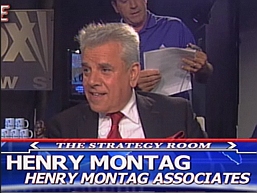
 When most people think about Legacy planning they often think about what assets they will leave and to whom. They think about how to divide up their assets so that there’s some sort of equalization taking place, be it in a situation where one child might get the Family Business while the other child or children may get an equal or equitable share of other monetary assets to make up for the fact that an ongoing business went to one of the beneficiaries. These are not fly by night decisions.
When most people think about Legacy planning they often think about what assets they will leave and to whom. They think about how to divide up their assets so that there’s some sort of equalization taking place, be it in a situation where one child might get the Family Business while the other child or children may get an equal or equitable share of other monetary assets to make up for the fact that an ongoing business went to one of the beneficiaries. These are not fly by night decisions.
Often times a parent or grandparent makes the choice to leave a portion of their assets to a Charity or a Foundation. If this is the case what are the tax ramifications of leaving such a gift and what impact will that have on the remaining beneficiaries. Should some gifts be given while you are alive so that you can enjoy seeing the look on your beneficiaries faces when they realize how well or how little they were thought of? Equal thought must be given to personal property as well which child will cherish the special piece of jewelry and which child is likely to one day sell it instead.
This opens the door to another important aspect of your Legacy and that comes down to what’s important to you and how you want to be remembered by those you love.
These are often things that may have No monetary value but nonetheless are priceless. I’m speaking of a philosophy or a state of mind or a saying or a quote, or an attitude that’s important to you that defines how you choose to be remembered. Sometimes the best way of expressing these wishes may be in a video you can make with a loved one holding the camera and asking the questions, or through a professional videographer.
Most people may have a will and that’s certainly important to speed up the probate process which every estate must go through before assets can be passed on to beneficiaries, but often times an informal letter accompanying the will or trust can have far more meaning to the individuals that love you. Hearing your thoughts and words are much more meaningful than having a lawyer read some legalese addressing people by names such as issues , or per sterpes.
You can leave the obituary writing to your family members or loved ones who in between all of their other gut wrenching responsibilities and chores must sit down and try to collect their thoughts at a very emotional time while probably leaving out many of the issues that may have been important to you Or you could give them a hand by participating in what I call a Living Obituary filled with items or notes or examples of what’s important to you and what should be mentioned.
There’s an awful lot of personal technology issues that we should take advantage of to make it easier for our beneficiaries to get it right. After all there’s only one opportunity to say what you want to have said about you when your best friend or child or spouse is speaking about or writing about you.
Speaking about technology, don’t forget to make special provisions for your web site, email history, music collection, or other items that will be locked away for ever if provisions aren’t made to leave a password for whatever is important to you electronically. An address book doesn’t do anyone any good if its stored in your email account and no one has access to your password.
The point is that assets are important but make sure you also spend some time thinking about the more personal and perhaps more important issue of “Values” that revolve around your all important Legacy as well.
Henry Montag CFP, CLTC
www.financialforumsinc.com
henry@financialforumsinc.com
516 640-1315

Helpful. We just had a death in the family and went through some of this. I found the ideas about electronic issures especially useful.